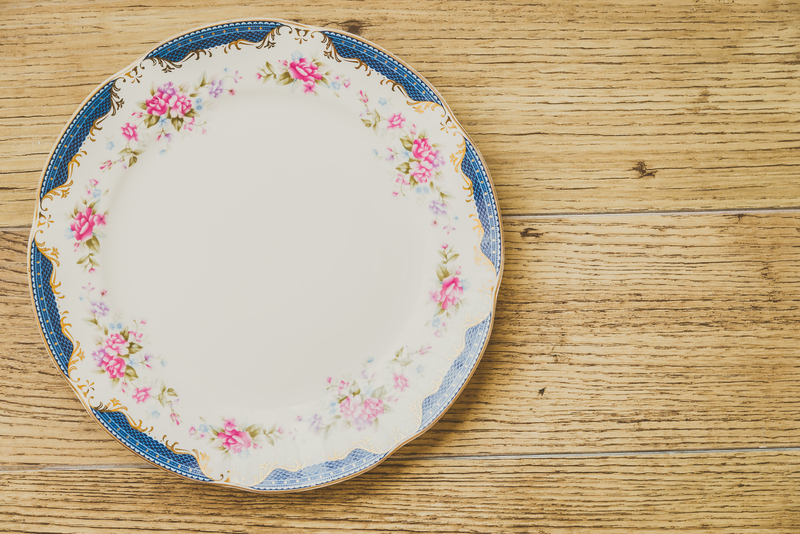Plant Pot Disposal Made Conveniently Easy
Are you swimming in a sea of old plant pots, unsure of the best way to dispose of them? The process of plant pot disposal may seem daunting, but with the right information and planning, it can be both environmentally friendly and convenient. In this comprehensive article, we'll explore innovative solutions and provide practical tips that make disposing of plant pots easier than ever. Whether you're an avid gardener or just want to clear out clutter, we've got your back. Let's dive in!
Why Proper Plant Pot Disposal Matters
Plant pots, whether plastic, ceramic, terracotta, or biodegradable, play a significant role in home gardening and landscaping. However, when it comes time to replace or remove them, improper disposal can lead to environmental problems. Understanding the impact of plant pots on our ecosystems underscores the need for responsible disposal practices.
- Plastic pots often end up in landfills where they take hundreds of years to decompose.
- Broken ceramic or terracotta pots can create safety hazards or contribute to unnecessary waste.
- Biodegradable pots may seem harmless but can cause issues if not broken down correctly.
Environmental Benefits of Eco-Friendly Plant Pot Disposal
By adopting proper plant pot disposal methods, you contribute to:
- Reducing landfill waste
- Saving energy and resources through recycling
- Lowering greenhouse gas emissions
- Promoting a sustainable gardening community

Diverse Types of Plant Pots and Their Disposal Challenges
Not all plant pots are created equal. The material your pots are made of influences the best way to dispose of them. Knowing the differences will help you make eco-conscious decisions.
Plastic Plant Pots
- Made from materials like polypropylene or polystyrene.
- Widely used due to durability and affordability.
Disposal Challenges: Not all recycling centers accept plant plastics. Some plastics degrade and are not suitable for conventional recycling streams.
Ceramic and Terracotta Plant Pots
- Favored for their aesthetic appeal and breathability.
- Heavier and longer-lasting than plastic options.
Disposal Challenges: Break easily, can be hazardous, and are rarely recyclable through curbside programs.
Biodegradable Plant Pots
- Made from organic materials like coconut coir, peat, or paper.
- Designed to break down over time.
Disposal Challenges: Need the right composting conditions to degrade completely.
Effective Methods for Plant Pot Disposal
If you're wondering how to dispose of plant pots conveniently, there are a variety of responsible solutions available. Each method can help the environment and even benefit your community.
1. Recycle Your Plant Pots Through Local Programs
Many communities offer specialized recycling for garden plastics. Here's how to get started:
- Check with your local recycling center about plant pot acceptance.
- Clean pots thoroughly to remove soil and residue.
- Remove any labels or stickers that could interfere with recycling processes.
- Look for garden centers or hardware stores with take-back programs for used pots.
Pro tip: Most recycling programs only accept certain types of plastic, so inspect the recycling code on your pots.
2. Reuse and Repurpose Old Plant Pots
Before tossing out your pots, consider giving them a second life:
- Reuse for starting new seedlings or propagating plants.
- Get creative: decorate and use as organizers for tools or art supplies.
- Offer them to local schools, community gardens, or neighbors.
- Use broken ceramic or terracotta pieces as drainage shards for other pots or as garden mulch.
3. Donate Plant Pots
Donating is a simple way to practice responsible plant pot disposal. Non-profits, community gardens, schools, and gardening clubs often accept used pots. Not only are you reducing waste, but you're also supporting local green initiatives.
4. Compost Biodegradable Plant Pots
If your pots are labeled as biodegradable or compostable, they can be broken down in a home or municipal composting system:
- Break larger pots into smaller pieces to speed up decomposition.
- Follow manufacturer's instructions for optimal composting.
- Verify that the materials do not contain synthetic additives that hinder breakdown.
5. Upcycle Plant Pots in Art and DIY Projects
Unleash your creativity! Old plant pots make excellent bases for DIY art and garden projects:
- Paint and turn into decorative planters.
- Transform into bird feeders or fairy gardens.
- Design garden markers or use as storage in sheds and garages.
Best Practices for Hassle-Free Plant Pot Disposal
Make the process of getting rid of old pots smooth and stress-free by following these best practices:
- Rinse and Clean: Dirty pots might not be accepted for recycling or donation. Wash away any soil or residue.
- Sort by Material: Separate plastics, ceramics, and biodegradable pots for proper disposal routes.
- Check Local Rules: Disposal and recycling guidelines vary significantly. Always refer to your city's recommendations.
- Avoid Stockpiling: Regularly cull and dispose of unneeded pots to prevent clutter and environmental harm.
Step-by-Step Guide: Disposing of Plastic Plant Pots
- Remove plants and soil. Shake off loose dirt to avoid contamination.
- Wash thoroughly with water. Use a brush for stubborn residue.
- Inspect for recycling codes, usually located at the bottom.
- Sort pots by recyclable numbers. Most centers accept #2 (HDPE) and #5 (PP) plastics.
- Drop off at authorized recycling points or garden center take-back bins.
Plant Pot Disposal at a Glance
| Type of Pot | Best Disposal Method | Challenges |
|---|---|---|
| Plastic | Recycle, reuse, donate | Not all plastics recyclable; must be clean |
| Terracotta/Ceramic | Repurpose, donate, shatter for drainage | Heavy, breakable, not curbside recyclable |
| Biodegradable | Compost | Requires proper composting |
Frequently Asked Questions About Plant Pot Disposal
Can You Put Plant Pots in the Curbside Recycling?
It depends on your local recycling program. Most municipalities do not accept garden plastics with curbside recycling because they often contain mixed plastics and residues. Always check with your recycling service first.
What If My Plant Pots Are Broken?
Broken plastic pots can still be disposed of at recycling facilities if accepted, while ceramic and terracotta shards are best repurposed for drainage or as mulch. If they're too small or hazardous, they may belong in general waste, but try to limit this option.
Where Can I Donate Old Plant Pots?
Contact local:
- Community gardens
- Schools and educational classes
- Botanical gardens and plant nurseries
- Charity thrift shops (if clean and in usable condition)
How Do Biodegradable Pots Break Down?
They decompose best in hot, active compost systems with good moisture and air flow. If placed in landfill, their decomposition is much slower due to lack of oxygen.

Tips to Reduce Future Plant Pot Waste
Prevention is the best cure! Minimize plant pot disposal needs by:
- Choosing sustainable options: Opt for recyclable or compostable pots when buying new.
- Investing in durable pots: High-quality ceramic or terracotta last longer than thin plastic.
- Supporting pot return schemes: Buy from nurseries that accept used pots back.
- Growing plants directly in the ground where possible.
Innovative Solutions: The Circular Economy for Garden Pots
Forward-thinking initiatives are revolutionizing plant pot recycling and reuse. Many nurseries now sell plants in recyclable containers or participate in take-back programs. Some businesses even use closed-loop systems, ensuring pots are endlessly reused or recycled into new ones. Supporting these programs drives eco-friendly industry changes.
Conclusion: Plant Pot Disposal Made Conveniently Easy
Disposing of plant pots doesn't have to be complicated or taxing on the environment. With responsible practices such as recycling, reusing, donating, composting, and upcycling, you can maintain a tidy space and support a more sustainable planet. Next time you're decluttering your garden shed, remember these convenient and easy plant pot disposal methods. Make a habit of responsible disposal, and encourage your community to join you in making gardening greener and cleaner.
Let's make plant pot disposal easy, efficient, and eco-friendly--one pot at a time!